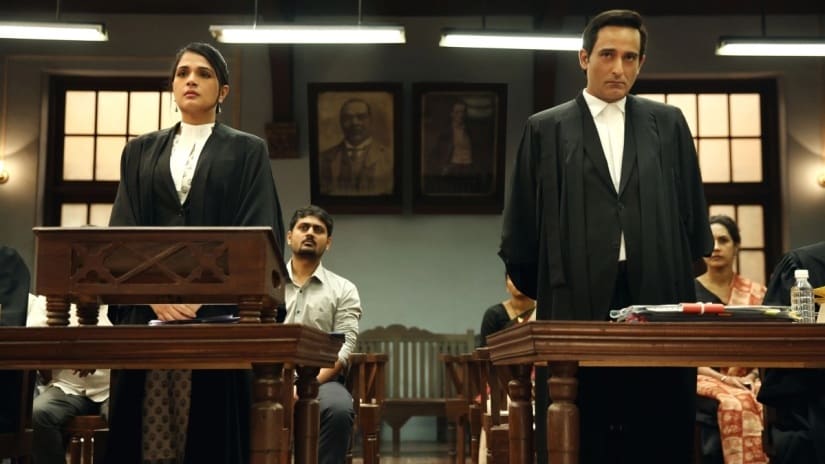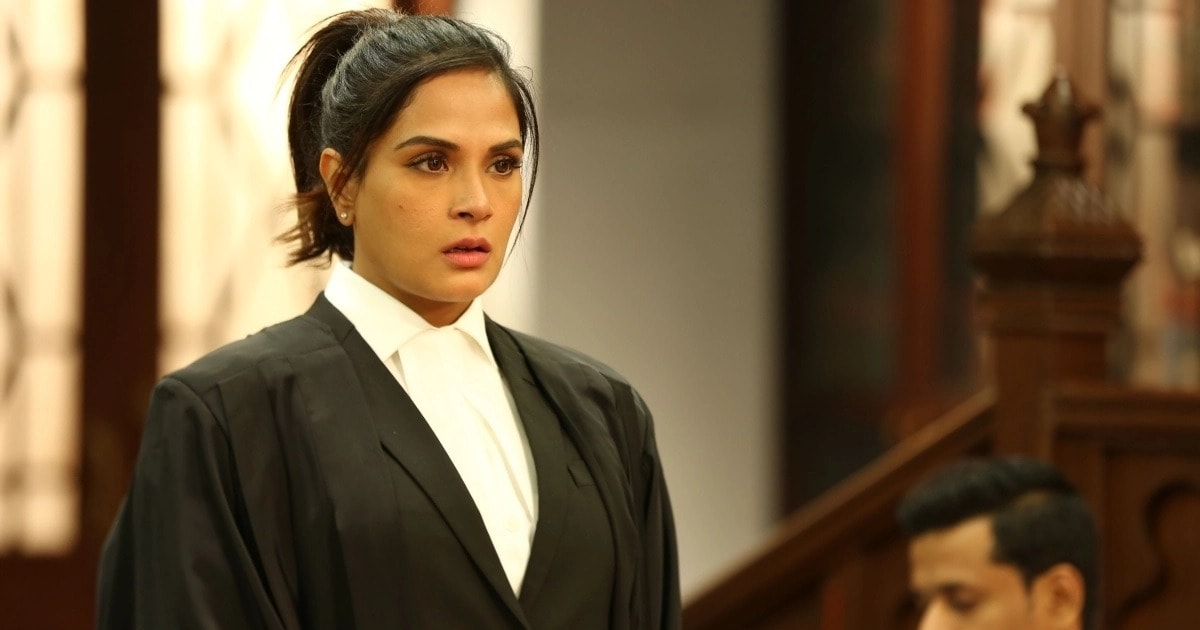It’s a lesson I’ve learned several times in the last few years: as odious as ignorance is, it is infinitely worse when it comes gift-wrapped in smugness. That’s Ajay Bahl’s recently released Section 375 for you, in a nutshell. As far as movies go, it’s not the worse you’ll ever see. Bahl manipulates tension rather adroitly through its 124-minute runtime. That’s the nicest thing I can say about a movie that, on more than one occasion, made me want to rip out the chair and hurl it at the screen. But that doesn’t stop it from being among the most remorselessly toxic films I’ve seen in a long time. The conspiracy theorist in me even wondered if Section 375’s suspiciously timed release is part of some multi-level co-ordinated PR plan by Bollywood to sweeten the audience to the idea of throwing their money at MeToo offenders in the near future. [caption id=“attachment_7345491” align=“alignnone” width=“825”]  A still from Section 375[/caption] A few days ago, we were informed that Aamir Khan, who I’m surprised hasn’t tripped over himself while back-pedalling on his self-promoted “zero-tolerance policy for sexual misconduct” claims, h as decided to go back to _Mogul_ after all because he feels guilty for Subhash Kapoor’s year of misery. And then comes along Section 375, to further lament the plight of the abuser. Tell me it’s not a co-incidence? Section 375’s premise is this: Anjali (Meera Chopra), a junior costume stylist is sent to Rohan (Rahul Bhat) her famous film director boss’ home to get approval on some costumes. While there, he grabs and kisses her, and pushes her under him on the sofa. It could be assault, or it could be a passionate interlude between angry lovers, we don’t know just yet. A few hours later, she accuses him of rape. He denies it. He’s married, so he first tries to sell the ridiculous story that his semen and pubic hair was somehow planted in her vagina and underwear. Obviously, that doesn’t hold water. He’s sentenced and carted off to jail for his 10-year rigorous imprisonment to begin. In comes Tarun Saluja (Akshay Khanna) with his impressive repository of frowns and thinned lips, at the behest of the quietly tormented wife (she really is the only character for whom I felt any sympathy) of the convict. He knows how dumb his would-be client’s claim of being “framed” is — what is he going to argue: that men tend to leave their semen and pubic hair lying around and someone broke in and took it? — and calmly goes about reframing the narrative. Sex happened, but it wasn’t rape. The two were in a relationship. Anjali is just a jilted, jealous lover, out to seek revenge. All this happens on the watch of Hiral Gandhi (Richa Chadda), whose ponytail has more character than her frequently shrieked appeals of “Objection!”, but without a single coherent argument against the point to which she is objecting. She’s supposed to be a firebrand feminist, specialising in cases exactly like the one she’s currently arguing, but you wouldn’t know that, given she spends her time in court alternating between permanently perplexed and faintly surprised. Halfway through the film, almost as if exhausted by the burden of pretending that the future advocate general of Maharashtra shouldn’t be so staggeringly bad at her job, she’s given a tweaked back story — she is inexperienced, and this is her first big case. Very early in the film, you know exactly where Bahl’s sympathies lie: with the accused. Long scenes and monologues are dedicated to the pursuit of emphasising how no man accused of rape can ever “walk free”, even if he’s acquitted by the legal system. Khanna’s admonishment of the facebook court and twitter jury is controlled and righteous, while the crowds protesting outside are shown to be hysterical, excessive and immune to reason. It’s a not-very-clever dig at the #MeToo movement. In a telling scene, as a judge deliberates over the matter, he watches the angry swarm outside the courthouse and looks visibly worried. The subtle implication being that perhaps public anger tipped the scales of justice. That’s fine, Bahl is free to tell whatever story he wishes to, even if it’s damaging to a movement as important as #MeToo. Nor do I believe in the blanket approach of believing all women, as some sort of misguided approach to solidarity. Our best hope is that we can listen to all women — even when the accusations are difficult to stomach — and try to be objective in our assessment of the evidence. But it takes a very special mind — and I don’t use special in a complimentary manner here — to make a movie about a woman’s insanely well-planned revenge, without once showing the goings-on through her perspective.
If Anjali, a nobody with no connections and little money, is smart enough to bring a Bollywood director who “knows the commissioner” to his knees, I definitely want to see the ensuing chaos from this cold, psychotic genius’ perspective. Wouldn’t you?
How did she know he’d send his maid off to the market at the exact time she showed up? What if his wife had been around? How was she so sure her family — including a brother who would promptly beat up his raped sister because it was her fault also — “allow” her to file the complaint? It’s not unheard of for families to cover up rapes to protect the family’s honour, which we all know resides within the mythical hymens of its women members. What’s her plan, now that returning to Bollywood is practically impossible? How did she know exactly what part of the building had cameras and what didn’t? I could go on and on, but the point is this: a dozen chips have to fall in exactly the places this criminal mastermind has marked for them for things to pan out the way they do. How does she account for all of them? But we’re never shown her reality from her perspective. Instead we’re treated to long sympathy shots about Rohan’s plight and biased soliloquies about what constitutes rape. It left me wondering exactly who they were meant for. The women who might be confused if they’d been raped? The men who can’t seem to wrap their heads around the concepts of will and consent? [caption id=“attachment_7345481” align=“alignnone” width=“825”]  Richa Chadha in Section 375.[/caption] I can’t speak for all women, but I’ll rely on my intuition for this one: when a woman’s consent has been violated or if its’s been obtained under duress, she instinctively knows — even if she’s not willing to admit it to herself — that the sex wasn’t voluntary, or with her will. And the pungent nonsense put forth by Section 375 is certainly not going to help the men who practise befuddlement like it’s an art form. In Bahl’s universe, filing a rape case and getting justice is a cakewalk, and the only problem with the system is that the law makes it laughably easy for vengeful women to exact revenge on errant lovers — especially if they also happen to be their bosses. Here’s a revolutionary solution to this burning problem: do not paw or stick your penis in women employees. That’s it. That’s all it takes. But that’s expecting too much, isn’t it? Section 375’s catchphrase is “marzi ya zabardasti”. So let’s do this one more time for people at the back: marzi (consent), when obtained by inducements, seduction, veiled/unveiled threats of retaliation/retribution/negative consequence by a person in power from a subordinate, is zabardasti (force). Understood?


)
)
)
)
)
)
)
)
)



